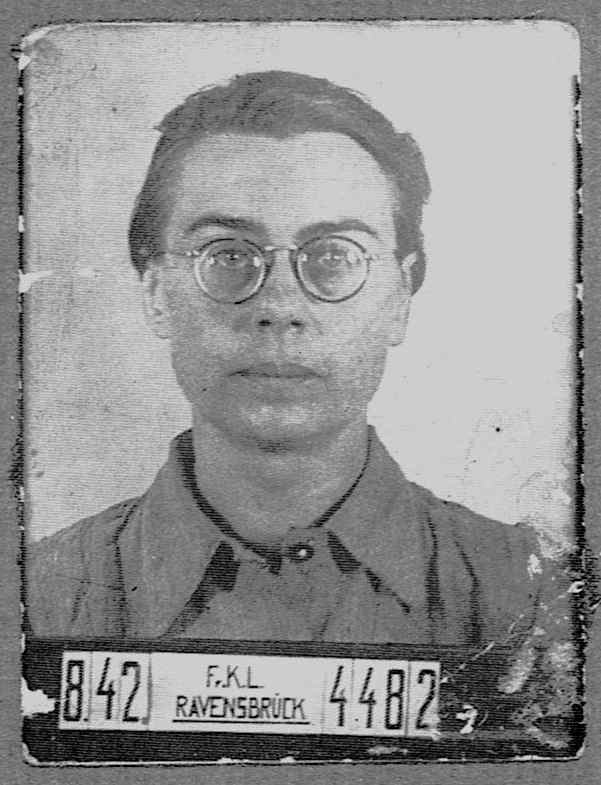Ilse Hunger, Anna Hand and Mitzi Berner
05.07.2020

Ilse Hunger, Gestapo-Aufnahme
The German Ilse Hunger and the Austrians Anna Hand and Mitzi Berner were employed in the "Arbeitseinsatz" office from 1943.
Together they were able to place prisoner women from different countries in certain work commandos. Marta Baranowska often sought contact with them when she wanted to help the Polish women in "her" block: that one or the other should not be sent on transport, that mother and daughter or siblings should not be separated, that easier work was needed for one or the other because of their poor health. She had always found understanding and help with Ilse.
Together with the prisoners of the "Revier" (the Camps sick-bay), the women of the "Arbeitseinsatz" office sometimes succeeded in saving human lives. Prior to the arrangement of transports to subcamps of the concentration camp, in some cases investigations of the prisoners were carried out in the "Revier". With false entries on the index cards by prisoners employed in the "Revier" confirming infectious diseases such as scabies or tuberculosis, it was possible to put some women back from hard labour.
On the other hand, transport to a subcamp could also be a chance of survival. One of those saved in this way was Marta Birek, a young Polish woman. When she was taken to Ravensbrück to be shot in the spring of 1945, Marta Baranowska passed on this news to the "Arbeitseinsatz-Büro. There Marta Birek was put on a transport list under a new name and number. She came out of the camp unrecognized and survived.
Erna Lugebiel later said about Ilse Hunger: "She was at this place the angel who did such work. She took names off the lists, exchanged prisoner numbers. Through these tricks many were saved, could live on with numbers of dead people."